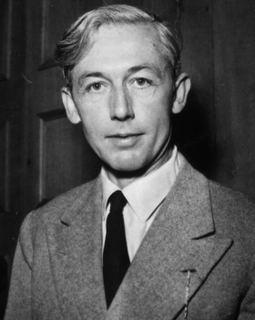A Quote by Johnny Depp
I always figured that once I wrapped a film, then anything beyond that is none of my business. If I can avoid seeing the final product, then all I have in my head is feeling good about the experience.
Related Quotes
What people don't understand about making a film is sometimes your experience on the film shapes who you are. You're gone to another country for five months, maybe more, there's training leading up to it... It's a whole life experience that people don't see because they just see the final product wrapped up in a couple hours. You don't see everything that happens around it. I think it's hard to say one movie or one thing; I think they all shape who you are.
If there is no absolute moral standard, then one cannot say in a final sense that anything is right or wrong. By absolute we mean that which always applies, that which provides a final or ultimate standard. There must be an absolute if there are to be morals, and there must be an absolute if there are to be real values. If there is no absolute beyond man's ideas, then there is no final appeal to judge between individuals and groups whose moral judgments conflict. We are merely left with conflicting opinions.
Well, the experience for me making a film is the most profound one. I really don’t have any business watching the movie so much. Maybe I could watch it for entertainment purposes, but you have so little input and control of the final product once you’re done that I feel like I just would rather leave it alone. It kind of leaves me in a place where every film I do, I’m kind of having to reinvent and figure out how to start again fresh, and hopefully not repeat myself.
On stage you never watch yourself. You just experience it, and then you go home, and you feel pretty good if you gave a pretty good performance or crappy if you didn't. But in TV and film, you actually have to experience it while you're doing it, and then you have to watch it. And then when you're watching it, you watch it with a different sensibility than how you experienced it.
When I was in N.W.A. and didn't get paid all the money I was owed, that's when the business side of showbiz hit me. I thought, "Half of this is workin'. I'm famous, but now I need to be famous with some money." That got my brain started at trying to figure out the business end. And once I figured out the business side, I next came to understand that success really comes down to the product, not to me, my personality, or what club I'm seen going into or coming out of. None of that matters.
You lose your sense of wonder the more you learn, right? When you go to film school and learn about moviemaking, you go to see movies and then only see where the lights are, where the cuts are, watching it from a technical basis, nodding your head, "Oh, that was good." The feeling of surprise, the feeling of being transported is further away.
This is a world of good and evil. Wherever there is good, evil follows, but beyond and behind all these manifestations, all these contradictions, the Vedanta finds out that Unity. It says, "Give up what is evil and give up what is good." What remains then? Behind good and evil stands something which is yours, the real you, beyond every evil, and beyond every good too, and it is that which is manifesting itself as good and bad. Know that first, and then and then alone you will be a true optimist, and not before; for then you will be able to control everything.
There is none of that feeling about art that you meet everywhere in Europe. There you will hear people say, 'Oh, you must see such-and-such a statue at 4 o'clock in the afternoon; then the light is beautiful,' or, 'See this monument in the early morning; the light is best for it then.' Do you ever hear anything like that from an American?
You're supposed to be writing from experience - experience with people, with reading, seeing some homeless guy on the street and making up some story of him in your head. If you never see any of that or have those conversations or even sleep enough to have vivid dreams, then what are you writing about?




































